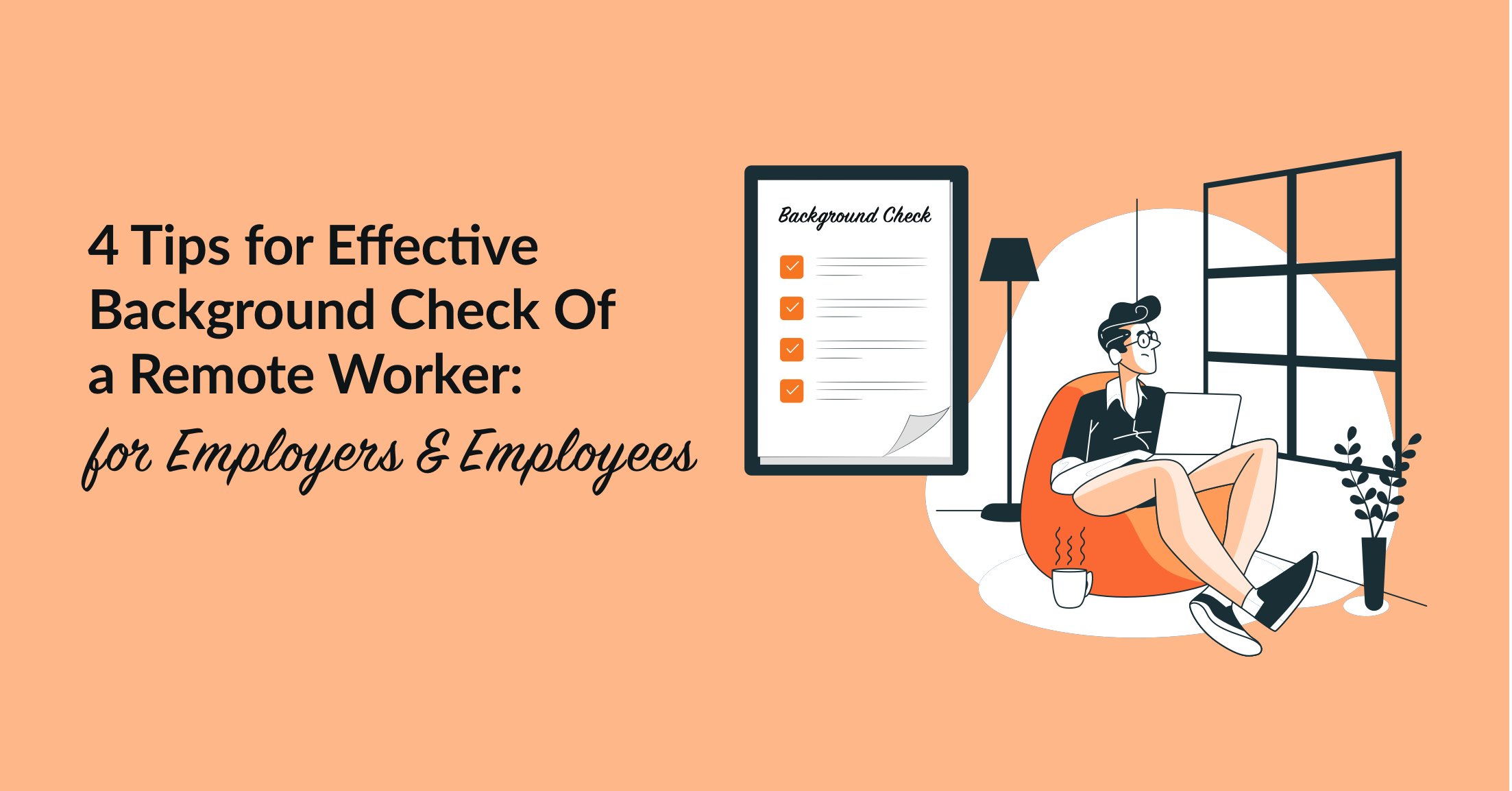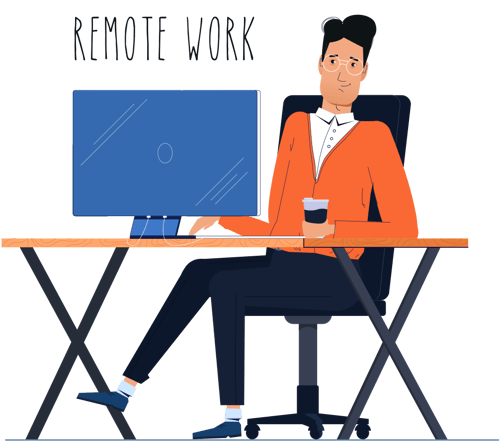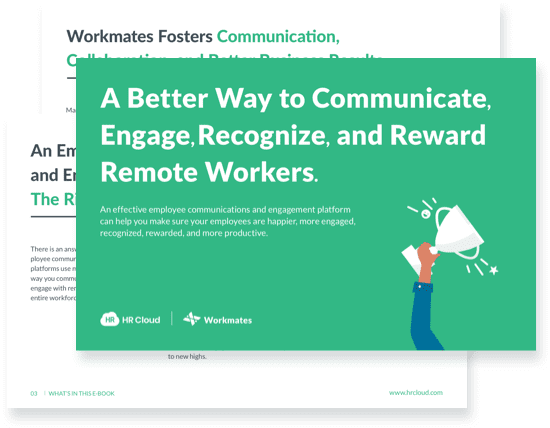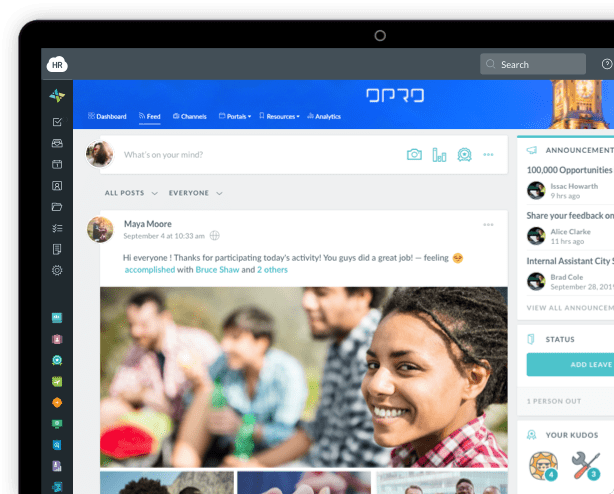4 Tips for Effective Background Check Of a Remote Worker: for Employers & Employees

A background check is a part of normal life for those who work remotely, and almost anyone can run one. Often a job applicant provides references of previous employers to give evidence of their successful work history. Many companies have been compromised by candidates who take advantage of a trusting relationship though, so further steps are taken to ensure their next person hired is of great caliber. This quick guide will give all the information you need to know about employment background checks.
Working Remotely
Especially since the Covid-19 pandemic, working from home has never been so popular for employers and employees. Even leading up to the pandemic, almost five million Americans were working from home. Coronavirus likely sped up a shift that was already gaining momentum.

Common Mistakes When Hiring Remote Workers
Not every employee has habits that are conducive to working from home and not every employer is made to have the ideal working from home environment for beginners. Like so many aspects of employment, there is no such thing as a fundamentally bad employee or employer. However, they can be ill-suited though.

Risks and Difficulties Hiring a Remote Worker
Hiring a remote worker still means having someone who will be a member of the team and get the job done. Consider making it so the candidate can have at least one face-to-face interview, find out if they have experience in the remote working software programs that your company uses, and conduct a thorough background screening.

Working from Home Means Working
The biggest concern when hiring someone to work from home is having them actually work from home. Boundaries should be made clear between employees and employers, and it could be the case that the traditional nine to five working model needs revision. Flexible work hours or even a result-orientated work ethic could be considered if it’s fitting with both parties.

To learn even more about managing remote teams and keeping employees working at home highly engaged, download our ebook now.
Download nowRemote and On-Board Hiring
Remote hiring means hiring someone who is to work remotely from the office. Remote onboarding is the follow-on from that process. To ensure that the new hire is fully invested personally in the operation, it may be worthwhile having them come to your head office for a day or even up to a week. Get them familiar with the rest of the operation, even consider having them spend some time with another remote worker. This will give them a feel of the culture and what is expected as a member of the team.

Tips on how to conduct an effective background check on a remote candidate?
There are many ways to conduct an effective background check, but the three main records that can get checked are driving records, criminal records, and drug screening.

Driving Records
Every state has some way of checking someone’s driving records. Driving record checks will reveal any incidents that the employee may have had while driving a car, as well as any encounters with law enforcement.
Criminal Records
Criminal record background checks will reveal whether or not the prospective employee has had any interaction with law enforcement, as well as the nature of that attention.
Drug Screening
Drug screening can be done remotely by a number of providers. It involves collecting a urine sample from your prospective employee to find out if they dabble in illicit substances.
Tips on how an employee should Prepare for Employment Background Screening
The reason why employers conduct background checks is to ensure that they are hiring a strong member of the team who will have a positive influence. If you’re applying for a position where you are working remotely, chances are the prospective employer is conducting a background check. In order to be prepared, it is best to know what they are going to find out first.
1. Get a copy of your credit report
Getting a copy of your credit report is quick and easy. It shows missed payments, mortgage status, and whether you've consolidate credit card debt as part of financial management. Many employers use credit reports to get an idea of who they are hiring.
2. Check your motor vehicle record
There are ways to copy driving records in your state so that you can check your history. It is recommended to also see what you might be able to do to rectify any past incidents. You can quite often contact your DMV to have points removed or records expunged.
3. Check court records
Go to your local court and find out what records they have. This will be a good way of finding out what is potentially on your criminal background check.
4. Stick to the facts
You know how good or bad you are as a citizen, and what is on your record. Getting hired is not an interrogation, and potential employers often value absolute transparency. If you know there is something on your record, it may be worth being upfront about the facts and raising it before they do.
Conclusion
There are many ways to increase productivity, Encourage employees who are working remotely to set a schedule and take regular breaks. It’s also crucial that you check-in with them from time to time to ensure that their morale is high. Don’t just monitor them for productivity. Keep an eye on their well-being and morale as well. That’s a win-win for everyone.
About Author: Patrick Peterson is a writer/editor at AutoDetective. Born and raised in the automotive world. He’s a passionate writer who crafts exquisite content pieces about everything related to cars and bikes.

Keep Reading
Balancing Technology and the Human Touch in Employee Engagement
Companies are taking employee engagement very seriously because it is one of the ways of
Building Strong Teams: The Power of Team Bonding Exercises
Never overestimate the power of collaboration as a core element of effective team

